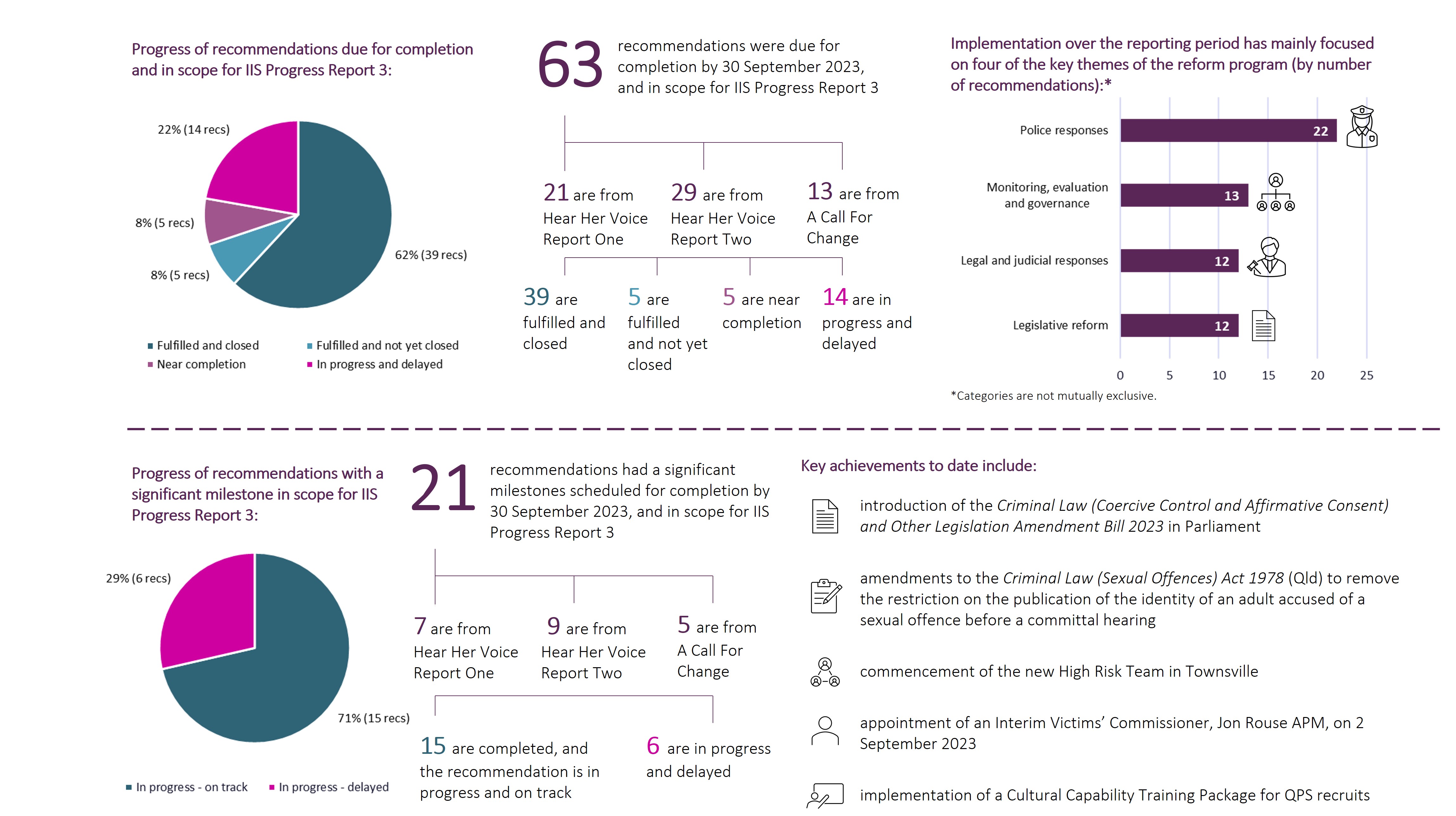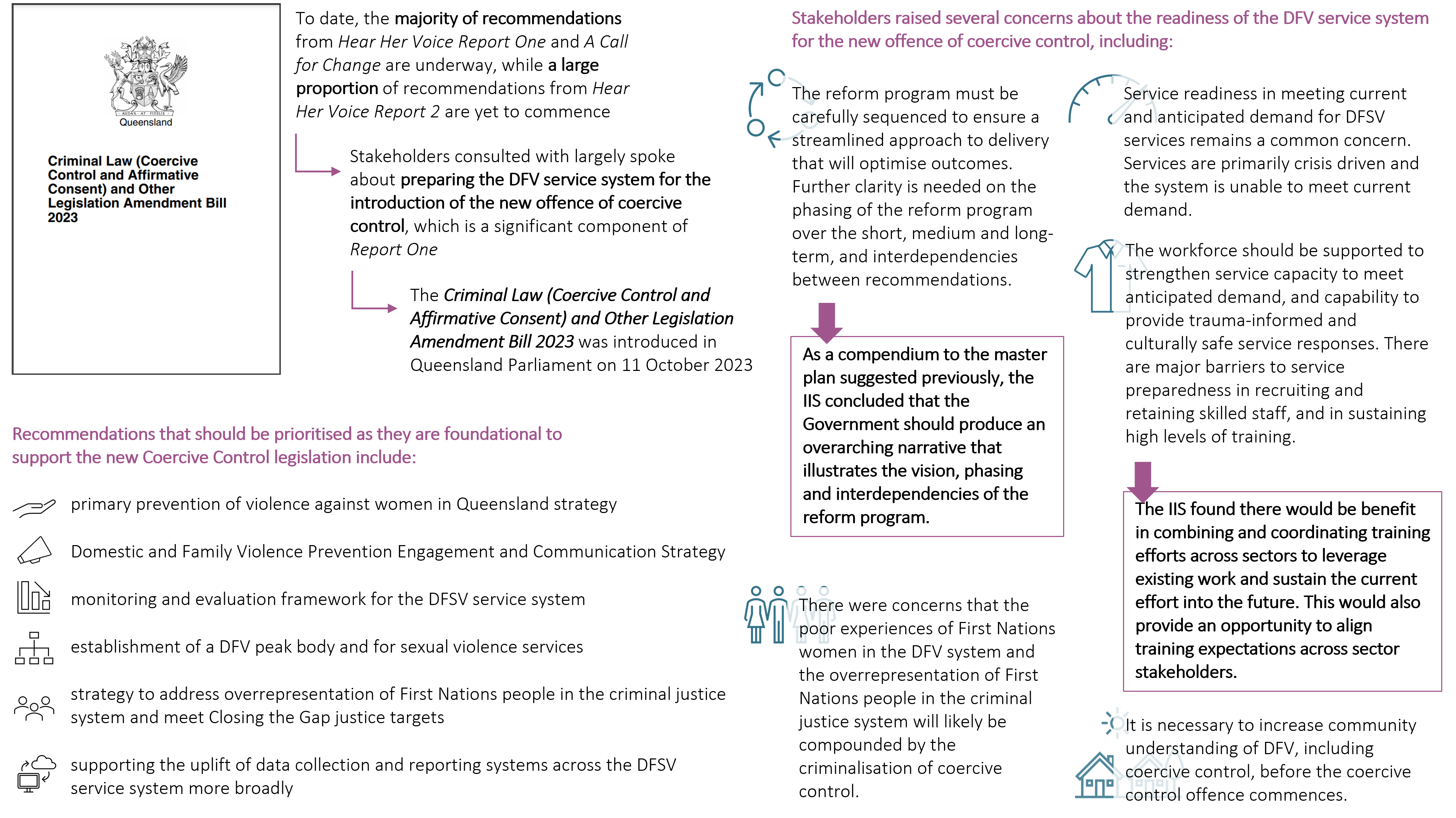Third progress report
The Office of the Independent Implementation Supervisor—Women’s Safety and Justice Taskforce Reforms: Biannual Progress Report 3 (November 2023) (third progress report) considers the progress of the Queensland Government Response to the two Hear her voice reports by the Women's Safety and Justice Taskforce and The Independent Commission of Inquiry into Queensland Police Service responses to domestic and family violence (A Call for Change) for the period 1 April to 30 September 2023.
Of the 63 recommendations that were due to be delivered in this period, the majority have been completed, with 62 percent of all recommendations considered fulfilled and closed. A substantial focus of effort has been on building the foundations of the new domestic, family and sexual violence system. This includes progressing legislative reform, establishing monitoring, evaluation, and governance mechanisms, and improving police, legal and judicial responses.

The Office of the Independent Implementation Supervisor (OIIS) spoke to 97 stakeholders across 35 organisations which comprised 11 government agencies, 19 non-government organisations and five statutory bodies. Stakeholders commended the progress made to date and largely spoke about preparing the domestic and family violence service system for the introduction of the new offence of coercive control, which is a significant component of the first Hear Her Voice report.

